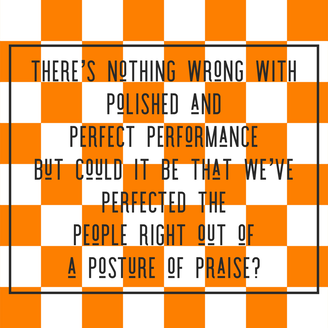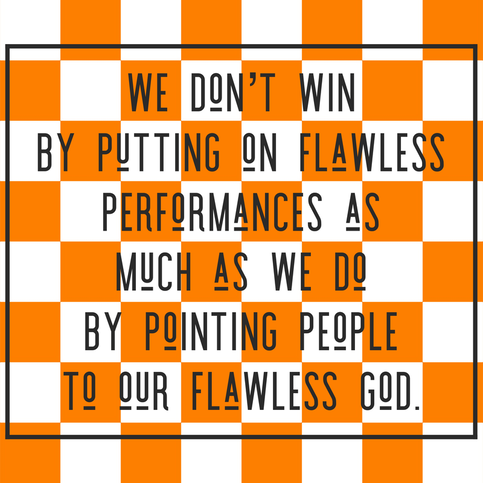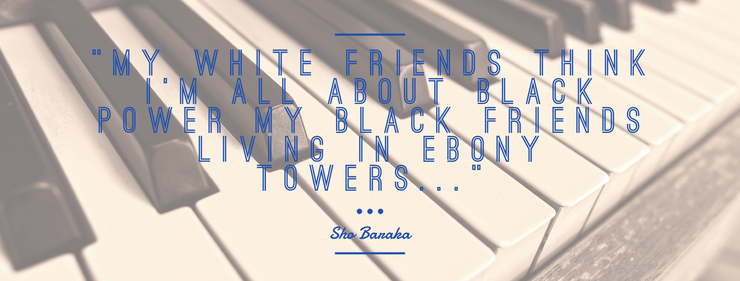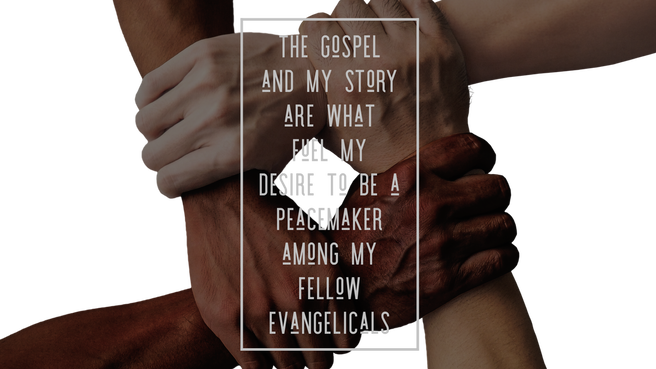|
#LoveCovers Kirk Whalum is an amazing saxophonist. If I ever really learn to play my saxophone, I’d like to sound like him. His latest album is called #lovecovers. This title is a double-entendre. "Covering” a song is when a musician performs the songs of another artist. So the album features Whalum covering some great Gospel and inspirational songs by other artists. The album also features a theme of the love of God and love for one another throughout. So these songs are covers of love songs but the album also seeks to convey the message that love covers. The end of all things is near; therefore, be alert and sober minded for prayer. Above all, maintain constant love for one another, since love covers a multitude of sins. Be hospitable to one another without complaining. Just as each one has received a gift, use it to serve others, as good stewards of the varied grace of God. If anyone speaks, let it be as one who speaks God’s words; if anyone serves, let it be from the strength that God provides, so that God may be glorified through Jesus Christ in everything. To him be the glory and the power for ever and ever. Amen. Love Covers
One of the great mental traps that we often fall into as believers in relating to one another looks something like this: We tend to judge others by their actions while expecting others to judge us by our motives. That is, we judge others by what we perceive that they did or did not do while simultaneously expecting others to judge us by what we tried to do or what our intentions were. This is understandable as the concrete actions of others are usually pretty obvious. What often isn’t so obvious is the “why” when someone does something we don’t agree with or care for. Being gracious enough to take the time to understand the why something was done will often help us to deal with the how something was done in a more God-honoring way. The above verses give such clear instruction on how we should serve each other as believers. Following them faithfully will eliminate much of the strife we experience in doing ministry. We have an imperative that we should live under as believers and it is found in verse 7. Our time is so very limited here. We shouldn’t waste it in bickering and fighting over carnal affairs. We should serve God and one another with pure motives and patient love. Patient love will help us to see past the carnal things that so easily distract and offend us. We’ve been given a gift. We should freely share our gifts with others. Christ has been hospitable to us, we should share hospitality with others. When we have to speak to one another, speak as you believe that God would speak. When we serve, make sure it is in such a way that God gets all the glory. The love of Jesus has covered us. Let us steward that grace and cover each other because love covers.
3 Comments
Getting to Know Rocky Top It happened at the final regular season basketball game for the University of Tennessee basketball team in 2018. I started to fall in love with the Volunteer Nation. The Vols needed to win this game to win the regular season SEC Championship. It was an intense game throughout and the crowd was completely engaged. I’m pretty sure I heard the Volunteer fight song Rocky Top at least two dozen times and somehow I never got tired of it (Go ahead and make your jokes now Vol haters and then read the rest of the post). We had better seats than I was accustomed to as the seats were a gift from friends. I was only about fifteen rows from the court. The people around me were fully committed to cheating their team to victory. Every time something great happened the band would fire up Rocky Top. By the time we got to about halftime, I knew enough of the words to Rocky Top to at least sing the part where we go “WHOO” with a lot of intensity. It was kinda cool to slap high-fives with people all around me when Admiral Schofield had an emphatic dunk late in the game to put it out of reach for the Georgia Bulldogs. Most of these guys were clearly way more wealthy than me but they loved their Vols and their love was infectious. Unless you’re a Vol hater, it’s undeniable that the energy and affection with which the nation supports their team becomes infectious when you’re immersed in the environment. This night also got me to thinking about how this environment might inform the corporate worship environments that I work in. Leading Worship in Rocky Top Land Not long after this, I actually got the opportunity to lead worship in Knoxville, Tennessee. Many of the people who I lead in worship weekly are Volunteer fans. Now, don’t @ me, but because of this, I’m quickly becoming a fan of the Volunteers. I love the energy of Vol supporters but I can’t help but notice how the most reserved of Tennessee fans can sing Rocky Top with full facial expression and maximum intensity almost on demand. It’s difficult for me but I try not to make this an apples-to-apples comparison in how my people express themselves in corporate worship. Instead, I’ve been pondering why people seem to be so much more comfortable expressing themselves with passion and intensity at a ballgame than they are in corporate worship of our King. I have begun to realize that people don’t come to a football or a basketball game solely for the purpose of taking in a professional athletic performance or even a musical one. They come to support and love their team. They come to let the world know that their team is better than the other team and they aren’t really shy about how they express this. While a great performance by their team, band and cheerleaders may enhance this, they aren’t the driving force that keeps the people coming. Nor are they the final product that the team is hoping for at Thompson- Boling Arena when they ask the crowd to feed the floor. The coaches and team are asking for that infectious passion, energy and intensity that pushes the team to keep going. They want those waves of energy that wash over the crowd and reproduce themselves in ever increasing sound and passion. What Does This Have to do With Corporate Worship? I’m sure that the University of Tennessee has one of the better marching bands and some of the better cheerleaders in the country. I’m also sure that if both of those groups weren’t very good, people would still show up to support the Vols. Perhaps not quite as many would come but the ones who truly love their team aren’t swayed by what they do or don’t do on the field. Here’s a fact, when we worship, we worship a King who only wins (Hold your Tennessee jokes) I don’t know if the UT band or cheerleaders are demonstrably better than any of their SEC counterparts. They didn’t sweep me into the Vol nation. It was the passion displayed by so many people who I have come to love that has done this to me. They have convinced me that their team is something special and worth cheering for. I believe that the same thing can happen when we worship. People are made to believe that the King of kings is something worth getting excited about when the people they are with allow themselves to get passionately excited. How do we help people get to a place where they can be passionately excited about corporate worship? I always tell my worship teams that they are worship leaders. This is true of choir members, band members, praise team members and orchestra members. They have a job to do every time they’re on that stand. Their job is to do the very best they can to help the congregation to worship. People often are unclear on how to do this. Does this mean that every note must be sung perfectly? Does this mean that the image on the stage is flawless? While perfect performance is desirable, it should be obvious that it simply cannot be the end goal. Many churches don’t even have the tools or talent to pull off the perfect performance so this cannot be the end game pragmatically or biblically speaking. I would go so far as to say that an over-emphasis on perfect performance may actually hinder corporate worship. In 1 Corinthians 14, Paul is admonishing the Corinthian church on their use of speaking in tongues in church. “Therefore the person who speaks in another tongue should pray that he can interpret. For if I pray in another tongue, my spirit prays but my understanding is unfruitful. What then? I will pray in the spirit, and I will also pray with understanding. I will sing praise with the spirit, and I will also sing praise with my understanding. Otherwise, if you praise with the spirit, how will the outsider say “Amen” at your giving of thanks, since he does not know what you are saying? For you may very well be giving thanks, but the other person is not being built up. I thank God that I speak in other tongues more than all of you; yet in the church I would rather speak five words with my understanding, in order to teach others also, than ten thousand words in another tongue.”  This passage clearly isn’t necessarily about musical worship but I think we can glean some practical insights and principles concerning public corporate worship here. Whatever Paul was getting at when he mentioned speaking in tongues, it is clear that this was something desirable yet it stood in the way of corporate worship (verses 18-19). There’s nothing wrong with polished and perfect performance but could it be that we’ve perfected the people right out of a posture of praise? It must also be made clear that worship technically isn’t for unbelievers or outsiders. The unredeemed cannot and will not worship. Our worship can however help us be missional toward unbelievers when we are unified and clear. Are we speaking a different and impossible to understand language with our lush and complex rhythms and harmonies from our vocal ensembles? Are we keeping praise out of reach of worshipers by putting music in keys that make our voices sound awesome while showing off our vocal range and dexterity in our soulful and stylistic singing? Are we perhaps telling entire generations of worshipers that they can’t participate in worship because they don’t fit the hipster look of skinny jeans and infinity scarves that lead from the stage each week? Are we telling other generations that they’re not welcome in worship because they wear those skinny jeans and infinity scarves? Or are we rather doing the hard work to find the voice and style of our congregations and setting them loose to worship the King? The congregation has a far more profound impact on outsiders and the believers through their work on Sunday mornings than the polished, curated and perfected look and sound of a team on stage. It is my belief and experience that people are more moved and inspired by passionate presence than they are by perfect performance. The goal is for our people to understand and join what is happening on the stage so they can sincerely say amen. None of this is to say that you and your worship teams shouldn’t strive for musical and visual excellence as an act of worship either. You absolutely should. My point is that as worship leaders, we must ever make every effort to set our congregations up to win more than us. We don’t win by putting on flawless performances as much as we do by pointing people to our flawless God. After all, a person may not be able to play in the band or perform with the cheerleaders but just about anybody can sing Rocky Top.
“You’re too concerned with Black stuff. You know, there’s a whole church of people here and we can’t just be concerned with Black issues.”
“Why does that even matter? As long as we’re singing about Jesus, it shouldn’t matter.” “I feel like only White churches are being asked to change.” “You’re a sellout.” “You only care about winning the respect of White people.” “You’ll get your wake-up call eventually. Those White folks will let you know what they really think about you.” “Why aren’t you in a Black church? The statements above are among the things I’ve heard in my time among Christians in Black churches. I’ve been called a self-hater and a sellout by people who look like me when I have voiced convictions that are perhaps different than that of most Black folks. I never was called a heretic because of this but only a sellout because I stood not against the Bible, but against something in the Black status quo as it were. The statements above are among the things I’ve heard in my time among Christians in White churches. It didn’t matter how many hospital visits I did or meaningful ministry efforts we accomplished together. It mattered not how faithfully and lovingly I cared for the church. When I dare to raise questions about race issues, things often seem to come to a full stop. I never was called a heretic because of this but only a cultural marxist or social justice warrior because I stood not against the Bible, but against something in the conservative White evangelical status-quo as it were. I’m grateful for my time among the many cultures of the body of Christ that I’ve experienced. I know that I’m a better Christian for having loved and experienced life with people who have had life experiences different from my own. Seeing other perspectives has helped me be ok with realizing how biased and limited my own perspective can be. This is a limitation that we all share. We believers should know this. We are a people bound by a common faith and a biblical heritage, a heritage that should trump every other allegiance. Our biblical heritage should guide us to truth and truth doesn’t change based on the perspective or history of the individual. I have a perspective and you may have a perspective but God’s perspective is the one that matters and is of eternal consequence. Real Talk I’m not speaking to the partisan and polarized among us. This isn’t for the ones looking to win a debate or exact revenge on their enemies. If you just want to shut the mouth of the person in your small group class who disagrees with you then you probably should stop reading here. This is for those of us who actually long to see reconciliation and healing between cultures and ethnicities in the body of Christ. This is for those who would like to communicate better cross-culturally but perhaps haven’t taken the time to listen to an opposing viewpoint or give the issue much thought. This is some of what I have observed in my time of doing theology in Black and White. I will do my best to give these voice without my own editorialization. What (Some) Well-Meaning White Evangelicals Think Right or wrong, White people are tired of being called racists. They are exhausted of having to go so far just to be seen as being at a place that they are at least ambivalent about race. Many of the Whites that I know who are actually and genuinely very sympathetic to race issues are fatigued with having to figure out what they can say and what they cannot say around other ethnicities. It is as if they are racist until proven otherwise. Right or wrong, Whites are largely confused or offended about terms like ‘White privilege.’ They may even understand the concept but they know deep down that every failing of minorities and every triumph by Whites can’t be explained solely by this phenomenon. They feel that their struggles and impediments to success are overlooked and ignored while others often seem to be given a pass or an excuse for their dysfunction. It often seems that being a White Anglo Saxon Protestant (WASP) means that anyone and everyone can say and do anything to you and nobody will come to your defense—especially if you’re a WASP male. While some Whites don’t realize it, many do realize that they have a culture and they feel this culture is under assault from all sides as retribution for the sins of yesteryear. This list isn’t exhaustive nor do I make any claims that this thinking is right or wrong. It just is what it is. What (Some) Well-Meaning Black Evangelicals Think Black Evangelicals are tired of being gaslighted by being made to believe that racial issues are a figment of their imaginations and a thing of the past. They are exhausted of having to qualify every complaint of racial insensitivity with conclusive physical evidence. Many Blacks who do try to survive and thrive in White evangelical spaces are tired of the charge of being cultural Marxists and social justice warriors when they voice legitimate concerns with certain policies, procedures or established norms and standards. Right or wrong, Blacks are generally pretty clear on the fact that White privilege exists. That is, there is a dominant culture in America and whatever it is, it isn’t Black. They may debate as to what the manifestations of this privilege is but they know that there is something to this phenomenon. They know that whatever Blackness is, they can’t exercise it freely in White conservative evangelical spaces. A world of new mores, philosophies, songs, strategies and style awaits Black people who leave the safety of the culture of the Black church and Black spaces. Being Black in the confines of dominant culture means you must take steps to prove that you’re not a threat or an enemy to the dominant culture before you can even be heard. This is why Blacks almost by default often employ code-switching as a means of survival and best practice when working and living in dominant culture. This list isn’t exhaustive nor do I make any claims that this thinking is right or wrong. It just is what it is.
So How Do Evangelicals Reconcile?
These answers won’t be satisfying for many but I’m confident that this truth is our only hope: We will never get true reconciliation by trying to put someone else on the cross. We’re going to have to get on that cross ourselves. We’re going to have to put our cultural and socio-political tribes on the cross too. When we do, the other side may still spitefully use and abuse you but you will have righteousness on your side. Furthermore, this act of Biblical courage may inspire your brothers in Christ to pick up their cross and follow you as you follow the example of Christ. This is the Gospel. We don’t deserve Christ’s patience and love but he gives it anyway. Your sociopolitical opponents may not deserve your patience and love but you should give it anyway. We can’t do our theology from ivory towers of superiority or ebony bunkers of self defense. We’re going to have to leave our comfortable structures of confirmation bias and safety and make ourselves vulnerable to people who see things from a different perspective than us. We have a biblical mandate to live this way. We evangelicals need to care about being together more than we care about being right. One thing I’ve noticed in the dust-ups between evangelicals on race issues is that we don’t care to follow the truth wherever it leads. We tend to cherry-pick scripture and highlight the areas that are most important to us and our sociopolitical and cultural tribes. After this, we take on the same attributes of the world and our polarized American culture. We feel that if somebody else wins something then it means that we must lose something. We act as if the other side isn’t worth redeeming. The Gospel teaches us that Christ gave all so we can have all. He didn’t do it because we deserved it. He did it because we are His beloved. He has called us to be the church. When we stand before Him one day, He won’t be slapping high fives with the White Republicans. He won’t be giving the Black Democrats dap. He’ll be looking for His bride and He will be more than enough for any of us. He’s more than enough now. Our allegiance and fidelity to Him are what matter. We must lay down our tribal needs to be right and in doing so, inspire our brothers and sisters in Christ to do the same. “Let love be without hypocrisy. Detest evil; cling to what is good. Love one another deeply as brothers and sisters. Outdo one another in showing honor. Do not lack diligence in zeal; be fervent in the Spirit; serve the Lord. Rejoice in hope; be patient in affliction; be persistent in prayer. Share with the saints in their needs; pursue hospitality. Bless those who persecute you; bless and do not curse. Rejoice with those who rejoice; weep with those who weep. Live in harmony with one another. Do not be proud; instead, associate with the humble. Do not be wise in your own estimation. Do not repay anyone evil for evil. Give careful thought to do what is honorable in everyone’s eyes. If possible, as far as it depends on you, live at peace with everyone. Friends, do not avenge yourselves; instead, leave room for God’s wrath, because it is written, Vengeance belongs to me; I will repay, says the Lord. But  Remember These? Remember These? I am a child of God and a worshipper of Jesus who has been radically transformed by the Gospel. I am also Black and unapologetically so. I am by no means a perfect person. I have blind spots and preferences like every one else. Jesus knows this about me and He knows this about everyone else as well. I’m also by no means a master theologian but I do my best to honor God in what I say and do. I’ve come to know that it’s really difficult to study or represent God accurately solely from my particular point of view. God has a perspective on things that is infinitely bigger and more thorough than mine. Therefore, when I think of “Big God” theology, I am doing my very best to get as far away from my personal perspective as possible to get a greater glimpse of the view of God. To understand my perspective, you need to understand my story. Here’s a little bit of it. Making Me Black My story and background is diverse. I grew up in Springfield, Illinois. The home of Abraham Lincoln is a diverse place. My upbringing was decisively middle class. My neighborhood was mostly White with a fair amount of other ethnicities around. I never really thought too much about race in those early days. From kindergarten to the fourth grade I was usually just about the only Black kid in my class but it never really bothered me. My best friend was a Korean kid for most of these early years. I just did and enjoyed whatever I felt like doing or enjoying. I went from elementary school to a fifth and sixth grade center and then middle school. It was during these years that I was around a large number of Black kids for the first time and I realized that somehow I was a bit different. I didn’t really talk about the things many of them spoke about. The only rap songs I really knew about were by MC Hammer and maybe a little bit of LL Cool J and Kool Moe D. My folks didn’t play that N.W.A. stuff so I was pretty sheltered. Don’t laugh, my folks raised me right. #Jesus From these years onward I began to grapple with what it meant to be Black. I won’t seek to define Blackness in this post but my high school years found me increasingly exploring this idea of Blackness. So much so that when it came time for me to pick a college, I had the opportunity to attend Clark Atlanta University, a Historically Black College and University (HBCU), in Atlanta, Georgia. It was here that I really came much more intimately acquainted with the sound and soul of Blackness. Songs and singers that I had heard about in passing from my Dad’s LP’s and from Magic 108 when I got the chance to visit my family in East St. Louis, Illinois became the soundtrack of my life. I was suddenly immersed in the culture that I had only romanticized about when watching Bill Cosby’s A Different World. Names I had heard about once a year in February suddenly became centerpieces of my thinking and worldview. Names like W.E.B. Dubois, Booker T. Washington, Malcom X and Martin Luther King Jr. were joined and supplemented by names like Vernon Johns, Joseph Lowery, Ralph David Abernathy and many others in my historical database. I was learning much more about Blackness. Atlanta also showed me a side of Blackness that I hadn’t been as much exposed to in Springfield. In Atlanta, particularly on the west side during the late 90’s, You had to go on quite a targeted expedition to find White people. There were Black professors, doctors, lawyers, teachers, preachers, store owners, politicians and everything else you can think of all around me. This was Black excellence to me. Black people had nice homes, clothes and cars and it wasn’t the exception it was the norm. It was here that I solidified what my parents had already taught me about Blackness and that was this: There is absolutely nothing wrong with being Black. Quite the contrary, our unique experience in this land had brought about something special, resilient and worth celebrating as much as any other heritage or culture you might find. The most transformative thing that happened to me during these years however was having my heart to collide with the Gospel when I was around 21. I didn’t know where life would take me when I met Jesus on that cold December night in 1999 but I suddenly became aware that He was the biggest and most important entity in my life and He was the only one that I wanted to shape my identity. Upon my graduation, I moved to Beaufort, South Carolina. This was my wife’s home town and is historic in its own right. This is the birth place of Robert Smalls and a cultural gem for learning of the Geechie and Gullah people. I wasn’t going out of my way to be Black or worship with Black people during this time. I was just living life and going where I believed God was leading me. I was still surrounded by and growing in Blackness. I served as Minister of Music at Pine Grove Baptist Church for two years before we got an opportunity to move to Jacksonville, Florida for me to teach in St. Augustine, Florida. We joined the great Shiloh Metropolitan Baptist Church in Jacksonville where they had a phenomenal preacher. This was before the great HB Charles graced the pulpit there but this pulpiteer, who has since suffered a moral failure, was simply great at teaching and preaching scripture. I didn’t know why this man’s preaching connected so much with me but I knew I couldn’t get enough of it. I would later come to know that his style of preaching was expository. It gives me great pleasure to point out that I learned about expository preaching from a Black church for those would argue that I’m trying to be White (more on that later). We soon moved back to Beaufort, South Carolina following the birth of my first daughter. We got back to work at Pine Grove Baptist Church. I also formally accepted my call into the Gospel ministry at this time. I still would log on to the website at Shiloh in Jacksonville almost every week and listen to the preaching. One Sunday a man of whom I had never heard preached. His name was Jerry Vines. I don’t remember what he preached about but I know it rocked my world so much that I had to find out who he was. A Google search revealed that he was the pastor at the time of the great First Baptist Church of Jacksonville and he was also hosting a preaching conference in Atlanta in a few months called Power in the Pulpit. I was thrilled when my church agreed to send me there to help me to prepare to learn to preach. It was here that I learned why I loved that preacher at Shiloh’s preaching so much. It was here that I learned that there was a name to this style of preaching that leaned so heavily on the Word of God. I determined in my heart that if I was going to be a preacher, I was going to be an expository preacher. Not long after this, we had the opportunity to return to the St. Augustine/Jacksonville area and I knew that whatever church we joined had to feature expository preaching. Upon landing in St. Augustine, we visited dozens of Black churches because this is all we knew how to do. We met many great people and pastors who loved Jesus and the Gospel. The Black church is full of people who love Jesus and the Gospel. We just didn’t feel called to any of the churches we visited. It was unfathomable that we would go to a White church, however, one Sunday morning, we didn’t have a church pre-selected to visit. We decided to run around the corner to the White church where my daughter was attending Pre-K. We visited Turning Point at Calvary Church and everything changed. Making Me White I remember our first Sunday there very well. I don’t think they sang a single song I had ever heard before. They probably didn’t actually sing these songs that day, but this is where I learned songs that all the cool White kids make fun of me now for. Songs like Everlasting God, Worthy is the Lamb, Your Grace is Enough, Not to Us and Days of Elijah were our regulars. Cut me some slack—this was like 2008. When I tell you that we were the only black faces in a sea of about 800 whites I’m not exaggerating. We were like two meatballs in a big old bowl of rice. In the strangest way, it seemed right. For some reason, we felt like this was the place that God wanted us to learn and grow in ministry. There were many growing pains and learning moments in these years. I may have some fun one day and talk about the very real differences between White church and Black church, but I’ll minimize those stories for now. Suffice it to say that there were many awkward moments and conversations. Again, contrary to popular belief, I wasn’t trying to act or be White at any point then or now. I can remember one Sunday in particular where one of the associate pastors made some very pro-Republican and anti-Democrat remarks that were very off-putting to me even though I was only marginally political at the time (but still a Democrat by default). I distinctly recall turning to my wife and saying, "that preacher needed to be careful because everyone in the room probably isn’t a Republican." I didn’t know that most White evangelicals were Republicans by default at the time but my point still stands. However, like it or not, this is where I really began to dig deep into theology and sharpen my skills as a theologian and preacher. That’s not to say this wouldn’t have or couldn’t have been done in a Black church as the Black church is no stranger to “Big God” theology or any other quality needed to grow good disciples. This was just where God had placed me and this was where I came to know, love and understand people who were completely different from me but bound to me by the name of Jesus. These were and are good people who love Jesus and the Gospel. How About Now? Since 2008, I’ve pretty much served in conservative evangelical churches that are predominately White. There have been triumphs and frustrations. I became a political radical right-winger for a time as an over-correction from my apathetic left-leaning history. I have since recovered and only wish to know and represent a Biblical world view wherever this truth leads me. Someone once said that the more biblically faithful you are, the more ambiguous your political alignment will be. I’m good with this. I’ve come to know and love many good people in my time in the Black church as well as the White. Many of which are born-again believers in Jesus Christ. These people agree with me on what is most important—The Gospel. Mankind is hopelessly fallen and in need of a Savior. That Savior is Jesus Christ. He was born of a virgin, died on Calvary’s cross and risen on the third day giving all who will put their trust in Him everlasting life and freedom from sin and death. Most of the people who I’ve worked beside in all of my churches are godly people who are doing the best they can to live holy, raise strong families, fulfill their ministries and give glory to God. They share my concerns and worries where it matters most yet in many cases there are some things that seem to separate us. Politics aren’t the point of this post however. It is clear that politics, race and culture are causing many rifts among evangelicals in America. We must reconcile that God does have a point of view and perspective that supersedes and, dare I say, trumps all of our limited perspectives. This includes the White, Black, Hispanic, Asian, Republican, Democratic perspective and any other perspective. I have lived among and loved a diverse group of Christians. The Gospel and my story is what fuels my desire to be a peacemaker among my fellow evangelicals. I hope to submit a way forward in part two of this post for these beloved people.
I got something to say...
Sho Baraka has a great song on his 2016 album The Narrative called Kanye, 2009. I’m not really a connoisseur of hip-hop but I really dig this song. It features the great Jackie Hill Perry and some cool sax riffs. Sho repeatedly reminds us in the hook that, “he got something to say.” He makes a lot of cogent and poignant points that I enjoy and may write about later but it’s the hook of this song that has been resonating in my soul for some time and I got something to say. Along with many in our society, I am evaluating and re-evaluating the role that I want social media to play in my life and that of my family. One of the most challenging critiques of social media for me that I’ve heard is that our repeated tweeting and posting cheapens the things that we have to say. I think this is true. Our words have become so cheap that we often don’t even stop to read these tweets and posts if they don't grab us in the first twelve characters. We certainly don’t take the time to read or write carefully much less to understand deeply. I got something to say. During my social media heyday, I loved debating politics, faith and economics on Twitter and Facebook. I would post provocative things and enjoy threads hundreds of comments long. I even once got retweeted by conservative firebrand Ann Coulter during my radical right-wing-overcorrection phase and instantly got more than 500 new followers on a Twitter handle I had back then. I’m pretty sure I contributed pretty heavily to the polarization and attention deficit that we see now in our public discourse. (You probably did and do too so don’t judge me) Over time I noticed that nobody is changing anybody’s mind in 140 or 280 characters. Yet, I still feel like I got something to say. I think that there is a reason that this song is resonating with me during a time when I’ve been feeling convicted to say and consume less on social media. I got something to say and I feel like God has a way He wants me to say it. He wants me to speak carefully, thoughtfully, lovingly and in a way that represents the Gospel and glorifies Him. He also knows that I highly value intelligent and civil discussion and even debate. Social media isn’t really the place for that to happen. I got something to say and if you care to hear it, I want you to come on over to my place and take your time and listen and respond carefully because I got something to say. The world seems to be spinning out of control. We have political, racial, economic and philosophical angst among Americans. My fellow evangelicals are following the world down the same divergent and acrimonious rabbit holes as we debate race and politics among ourselves. I happen to believe that there is a better way and I got something to say about finding God’s heart concerning some of these issues and giving a Bible centric, Gospel centric, truth centric view that isn’t beholden to tribe. Blogging has always been in the periphery of my possibilities. Now is the time to let it all out and go. I’ve learned a lot in the last several years. I’ve grown a lot and experienced much change and evolution of thought. I’m looking forward to examining faith, society and culture with you if you’re interested in my thoughts. I definitely got something to say and maybe we’ll have some fun along the way! |
AuthorHerbert is a believer in Jesus Christ who is overwhelmed by the riches of the Gospel, the husband of April and the father of Cadence, Imani and Angel. He also serves as the Lead Pastor for the Chets Creek Church North Campus in Jacksonville, Florida. He has been serving in full time ministry for more than six years and was a public school music educator for twelve years prior to that. He loves deep philosophical conversation, barbecue and golf even though he stinks at it. Check out GospelBlue Productions as we grow! Archives
September 2021
Categories |






 RSS Feed
RSS Feed